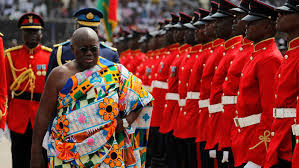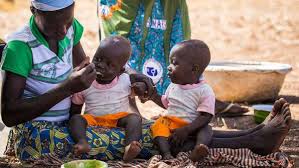The president of Ghana, Nana Akufo-Addo, issued a warning on Tuesday that the Sahel region of West Africa is in danger of being overrun by a raging Islamist insurgency.
Ministers from Europe and West Africa are meeting in Accra, the capital of Ghana, to explore regional responses to the insurgency that is increasing as foreign soldiers leave Mali, where militants have taken wide tracts of land.
This year, a number of nations cut off military ties with Mali due to the junta’s association with Russian mercenaries, including France, Denmark, and the Ivory Coast.
Since a military administration that took control in an August 2020 coup failed to hold the elections it had promised, Mali, where West Africa’s conflict first took hold in 2012, has been at odds with regional governments, Western powers, and a United Nations peacekeeping mission.
Tensions were made worse by cooperation with Russia and alleged military violations.
There are worries that if the military leaves Mali, it will leave a security vacuum in a region where al Qaeda and Islamic State affiliates have already spread to the country’s neighbors and entered coastal regions south of the Sahel.
On the second day of the Accra Initiative security conference, President Akufo-Addo stated that “today’s terrorist groups, emboldened by their success in the regions, are seeking new grounds.”
The scenario, he warned, “threatens to envelop the entire West African region.”
Despite efforts to combat insurgents, attacks have increased over the past ten years. According to the U.N., the violence has resulted in thousands of deaths and more than 2.7 million people being displaced throughout the Sahel.
A food crisis has also emerged in the area as a result of conflict and climatic shocks.
According to the U.N., about two million more people than in 2021 will need protection and help for their lives in the Sahel region.
In the meantime, attacks in coastal nations like Benin and Togo have increased recently, sparking debates about Western assistance to stop the insurgency’s march south.
According to Charles Michel, president of the European Council, “the risk of contagion into the coastal states is no longer a risk; it is a fact.”
He continued that “lethal hardware for defensive purposes” was part of the EU’s support for the area, saying “We all need to figure out the best way to have an impact on the ground.”




















